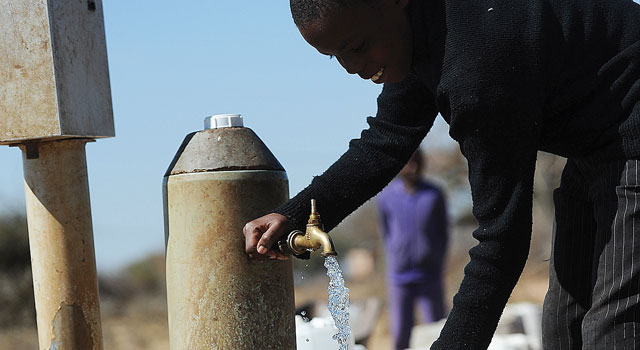FRANCISTOWN: Water tariffs are likely to rise due to high operational costs which include distribution of water to consumers around the country. The Minister of Minerals, Energy and Water Resources, Kitso Mokaila, revealed last week during the Water Pitso that considering operational costs which include among other things, maintenance, electricity used in treatment plants as well as infrastructure for distribution, there is need for water tariffs to go up.
The Minister said the P2. 00 currently charged per 1, 000 liters of water is too little considering the operational costs incurred by government. “So we cannot carry on with these low tariffs while we should be paying the right price for water. These low charges are frustrating to government because it means that the consumers are not paying for maintenance, infrastructure, capacity as well as electricity,” the Minister said, adding that this will help to produce the right quality of water needed by consumers.
Furthermore, Mokaila said as water preservation measures, the Water Utilities Corporation should not shy away from cutting-off government institutions that fail to pay water bills. He said despite the fact that government institutions should be at the forefront in water preservation, it is not the case.
Meanwhile, Botswana has set a target to reduce by 50 per cent the proportion of people living without access to safe drinking water and basic sanitation by the end of 2015 . The situation as regards access to safe drinking water is currently promising. According to Minister Mokaila, in 2004 the proportion of the population with sustainable access to improved water source stood at 95.8 per cent and this rose to 96 per cent three years later.
However, speaking at a different occasion, the World Water Day commemoration, Minister Mokaila revealed a not so promising statistic for sanitation. “For sanitation however, more effort is needed because in 2004 the population of people with access to improved sanitation stood at 39 per cent and it rose to 60 per cent in 2008. Inadequate planning for sanitation infrastructure development and waste management poses a challenge to water due to pollution of water resources, hence it is the government’s intention to pursue the goal of achieving access to improved sanitation.”
With regards to institutional reforms and as the world wakes up to the water and sanitation crisis, Mokaila emphasized the need to undertake some restructuring of water sector institutions so that they are modern and strong enough to face up to 21st century challenges. “The major thrust of the reforms is to improve service delivery within the sector by separating water resources management, water supply and sanitation service roles. This devolvement of sanitation services and planning to the Ministry allows for an effective integration of fresh water and wastewater. By so doing, this will provide for the opportunity to curb pollution and hence sustainable development,” stressed the Minister.
The Minister also highlighted that the current water demand in the country for various sectors stands at 221 million cubic meters per annum and only 218 million cubic meters per annum is currently committed for use. “By the year 2016 Botswana will require 225 million cubic per annum to stimulate growth in various sectors of the economy,” added Mokaila.

